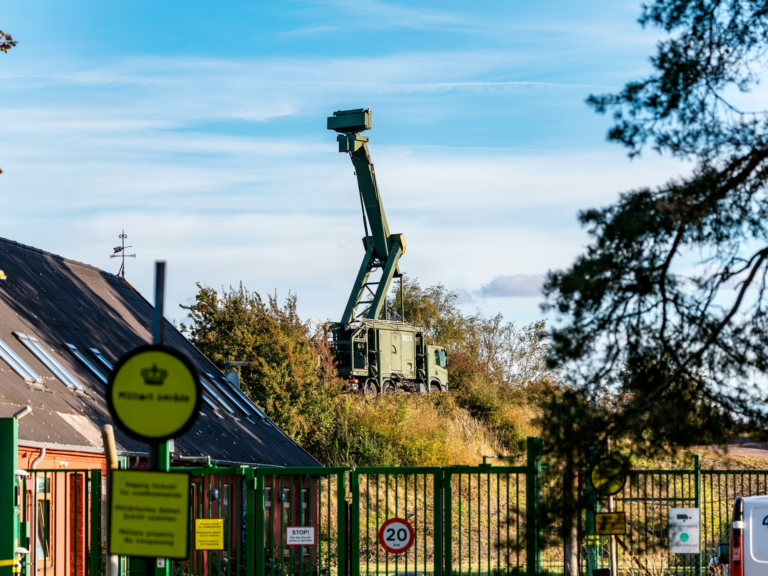Recent drone flights have prompted temporary shutdowns at multiple Danish airports, intensifying security concerns amid the ongoing conflict in Ukraine.
In anticipation of an upcoming European Union Summit, Denmark has imposed a temporary ban on civilian drones within its airspace. This decision follows multiple drone sightings near military installations late Saturday night. The Nordic nation has been on heightened alert after a series of drone-related disruptions over the past week, which forced the closure of several airports.
This prohibition will be effective from Monday through Friday next week, coinciding with Denmark’s tenure as the rotating president of the EU for the latter half of the year, during which it will host key European dignitaries.
“Given the current challenging security environment, it is crucial to provide optimal conditions for our military and police forces tasked with safeguarding the EU summit,” stated Defence Minister Troels Lund Poulsen on Sunday.
The Ministry of Defence revealed earlier that multiple resources had been mobilized following the drone detections, though details regarding the scale of deployment, drone numbers, or exact locations were not disclosed.
This development follows NATO’s announcement of bolstering its Baltic Sea mission by deploying an air defence frigate, a direct response to the recent drone incursions in Denmark.
In a statement to Reuters, NATO emphasized its commitment to “heightened vigilance through enhanced multi-domain capabilities in the Baltic Sea area.”
The alliance highlighted the integration of “advanced intelligence, surveillance, reconnaissance systems, and at least one air-defence frigate” as part of this effort.
On Monday, Copenhagen Airport experienced several hours of closure after large drones were detected in its vicinity. Subsequently, five smaller airports across Denmark, encompassing both civilian and military facilities, also faced temporary shutdowns.
Characterizing the Incidents as a Hybrid Assault
The Danish Ministry of Transport announced a comprehensive ban on all civilian drone operations within national airspace to eliminate confusion between hostile and authorized drones.
“We cannot tolerate foreign drones causing societal disruption and uncertainty, as witnessed recently. With the EU summit imminent, security measures will be intensified,” explained Transport Minister Thomas Danielsen.
Violating this ban may lead to penalties including fines or imprisonment for up to two years, according to official statements.
Denmark is set to welcome EU leaders on Wednesday, followed by a summit of the broader 47-member European Political Community on Thursday. This forum was established to strengthen ties between the EU and neighboring European nations in the wake of Russia’s 2022 invasion of Ukraine.
Denmark has described the drone activities as elements of a “hybrid attack.” While refraining from explicitly naming the perpetrator, Prime Minister Mette Frederiksen has implied Russian involvement, labeling Moscow as the foremost threat to European security. The Kremlin has denied any responsibility.
NATO Secretary-General Mark Rutte recently stated that Russian participation could not be excluded, a claim Moscow has firmly rejected.
To support airspace monitoring during these critical events, a German air defence frigate arrived in Copenhagen on Sunday.
These drone incidents coincide with Estonia’s recent accusation that three Russian MiG-31 fighter jets breached its airspace for approximately 12 minutes before being escorted out by NATO Italian fighters. Russia denies these allegations as well.
At the United Nations on Saturday, Russian Foreign Minister Sergey Lavrov condemned Western accusations, accusing them of fearmongering about the prospect of a “third world war.”
“Russia is being falsely accused of planning attacks against NATO and EU nations. President Vladimir Putin has consistently refuted these provocations,” Lavrov asserted.

















